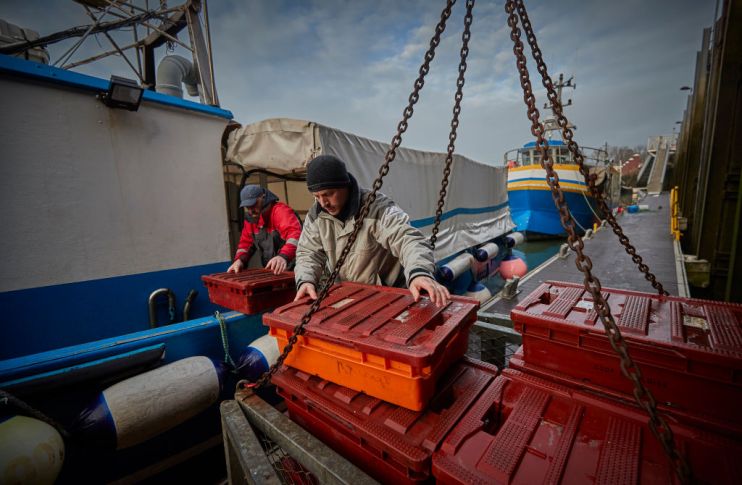Brexit fishing deal ‘far away from sea of opportunity’, industry chief says

UK fisheries have been left high and dry by the post-Brexit trade deal agreement with the European Union, an industry body boss has said today.
The National Federation of Fishermen’s Organisation boss, Barrie Deas, has urged the government to up its support for the sector when the so-called ‘adjustment period’ ends in 2026.
The trade deal meant the bloc’s rights to the UK’s fishing waters are to be gradually cut back over the next five years, with annual talks taking place from 2026 onwards.
Brexit was carried ashore with talk of “winning back control” of Britain’s fishing waters, but Deas said the government’s promises made before striking a trade deal with the bloc late last year had been broken.
“It’s really quite hard to convey how sudden was the fishing industry’s fall from grace,” he said.
“The flags flying over our vessels for the last couple of years had a slogan which was ‘fishing no sell out’ and that really spelt out our fears. Those flags now seem both politically astute and prescient because that’s what’s happened.”
While there have been changes to quotas for fish, which determine how many fish fisheries can catch legally, the changes have been ‘marginal’.
“In that sense it’s a tale of woe, very far away from the sea of opportunity that some spoke about,” he said.
‘EU is quietly confident’
The industry boss added that the bruises Covid-19 has left on the industry have made it harder to measure the impacts of the government-lauded trade agreement.
“One of the big questions is what happens after 2026 and it’s clear that the EU is quietly confident that it has sufficient what it calls dissuasive powers to prevent the UK from fully asserting its rights,” Deas said.
Deas’ comments come only a day after calls from the European Scrutiny Committee for government clarity on support for British firms if they are affected by an uneven playing field that could be created by a €5.3bn fund subsidising its Brexit-impacted industries.
If EU countries decide to use much of the new Brexit Adjustment Reserve funds to subsidise private businesses as expected, British firms could find themselves at a competitive disadvantage, the committee’s report warned.